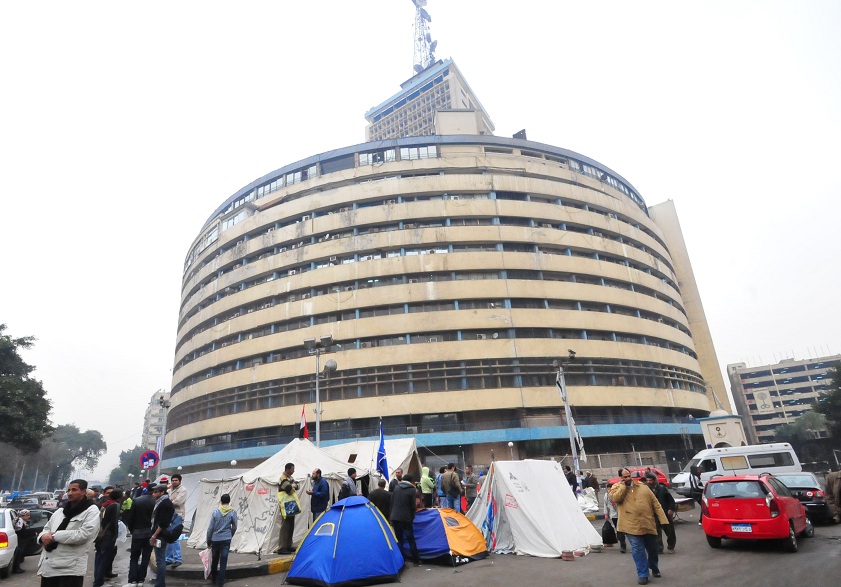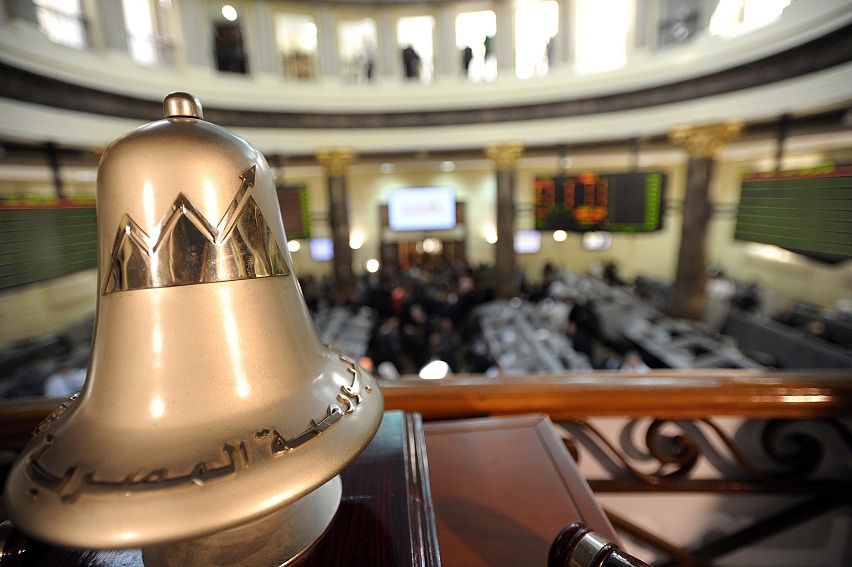
AFP PHOTO/AHMED FUAD/HO/ EGYPTIAN PRESIDENCY
By Sara Aggour, Hend El-Behary and Doaa Farid
Although many officials dubbed the recent Gulf aid package of $12bn as a “lifeline” to Egypt, the prospect of future Gulf and foreign investments remains unclear.
Magdy Tolba, the economic expert and chairman of Arabian House of Consultancy for Financial and Economic Investment, said the aid was not based on mutual economic interests, but rather a reflection of “a conflict, and to show loyalty and support to Egypt.”
When first elected, ousted president Mohamed Morsi’s first visits were to Gulf countries, traditionally strong allies of ousted president Hosni Mubarak, in order to boost bilateral financial and economic relations, as well as to ease rising concerns that the new Islamist government would strengthen its ties with Iran, the controversial neighbour.
On 11 June 2012, Saudi Arabia was Morsi’s first destination after he took office, although nothing flowed from the Saudi treasury into the Morsi government’s coffers.
Morsi was unable to find adequate financial support packages; despite his efforts to borrow loans from many neighbouring countries, amid the country’s slowest economic growth in more than a decade.
Kuwait has been the only Gulf state to provide aid during and after Morsi’s rule. In September 2012, the Kuwaiti government, represented by the Kuwait Fund for Arab Economic Development (KFAED), signed a deal to lend KWD 17m ($60 million) to aid the expansion and development of the Egyptian natural gas distribution grid.
“Once the political situation stabilises, the cooperation between these countries and Egypt can start on the foundation of economic and financial development,” Tolba said.
Qatar was Egypt’s biggest donor during Morsi’s rule, injecting $8bn into the country’s struggling economy. In August 2012 Qatar promised to deposit $2bn in the Central Bank of Egypt. In May, Qatar offered $3bn in low-interest loans.
Despite the influx of Gulf aid following Morsi’s ouster, Qatar has revealed no similar packages.
Ahmed El-Naggar, editor-in-chief for the Economic Strategic Direction, said: “till this moment there has not been any actual talk about the gulf investment in Egypt, only aids.”
Sherif Sami, board member in the investment authority, also confirmed that the only signs of investment were on pre-existing projects, like the Maadi City Centre Mall.
Emirati’s Majid El-Futtaim decision to redevelop the mall, at a value of EGP 3.2bn, came after Investment Minister Osama Saleh met with a delegation from the company.
Following the meeting, Majid El-Futtaim’s general manager and board member Abdullah Al-Nukrashy expressed his optimism with the “determination in the investment sector, and the desire of the Ministry of Investment to resolve investor problems.”
Sami believed that gulf investment will start flowing after the new government fulfils the promises it has provided in its work plan.
“It’s so early to jump to conclusions, however it’s safe to say that investors in general are optimistic about the new government,” he said, adding: “what the government needs to focus on is solving the problems of the already existing investors and this will automatically attract new ones.”
“Gulf investors normally spend in real estate and housing because they are long term projects,” Sami added.
He said that solving energy problems as well as land acquisition issues are “essential measures” the government must take to solve the investors’ problems.
“The government must create facilities that will draw new investments to the country,” Sami said.
Government efforts
Several branches of the government have been studying how they can court foreign investors once more.
Earlier this month, the General Federation of Investors announced its decision to hold a series of meetings with the recently appointed cabinet ministers to study solutions to the problems that face the investor in Egypt.
Aboul Ela Abu El-Naga, member of the General Federation of Investors, said investors “have been suffering since the revolution, and that it is critical for the new government to address the economic problems and announce an economic vision.”
Moreover, Mohamed Khamis, the head of the Egyptian Union of Investors Association (EUIA), said during a meeting with the Minister of Industry and Foreign Trade Mounir Fakhry Abdel Nour: “Investors are optimistic about the new government.”
Many foreign investors, however, have expressed their concerns regarding the investment environment.
The British Gas Group (BG) expressed concerns over investments in Egypt due to the recent political unrest in the country in its second quarter earnings report released 26 July.
The chief executive of BG Chris Finlayson said the events are a primary concern and will continue to be so as the political, social and business environment evolves.




